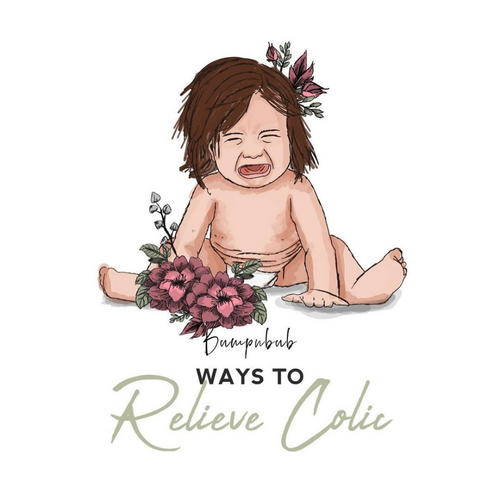Written by midwife, perinatal mental health specialist and creator of Bumpnbub, Aliza Carr.
Please note, this article is general advice only and does not replace the need for medical advice. Please consult your GP or paediatrician for any concerns around your baby.
Firstly, colic has nothing to do with your ability to parent. Most people haven’t even heard the word colic before they have a baby that suddenly won’t stop screaming! You are doing well and it WILL get easier.
So what is colic?
Colic is a bit of a mystery. This term applies to any healthy, well-fed infant who cries for more than 3 hours a day, more than 3 days a week, for more than 3 weeks. All babies cry and a fussy baby doesn't necessarily have colic, but sometimes a baby will cry for hours at a time, no matter what you do. This extreme type of crying is defined as colic. Thankfully, there is a light at the end of the tunnel! Colic tends to peak at around 6 weeks and then improves significantly between 3 and 6 months.
There is no doubt bubs are often in pain during episodes of colic - many professionals believe the issue is caused by an immature digestive system or obstruction and wind in the intestines.
Some of the other causes identified are:
- Bub is reacting to something in mum’s diet if bub is breastfed (keeping a food diary can be a great way to track and see when bub is more irritable).
- A reaction to formula/lactose if formula feeding. Some mums try alternatives to dairy.
- Baby is getting overstimulated/overtired/stressed by their environment.
Some other reactions from bub who might have colic include:
- Clenched fists
- Arching of the back
- Bloated tummy
- Trying to or passing wind during crying
- Tight/firm abdomen
Check your baby's belly. If gas is causing your baby's colic, their stomach may become slightly enlarged. Pay attention to the amount of gas your baby passes. If the amount seems especially large during his or her crying fits, there is a good chance your baby is suffering from colic. Colic can stem from ingesting of too much air during breastfeeding and can be corrected by a lactation consultant with assistance in latching. The same can occur for bottle-feeding infants - Haakaa’s anti-colic teat is perfect for minimising your little one’s air intake as they drink.
Ask your doctor to rule out other possibilities. Other conditions, such as a twist in the intestine or a hernia, may cause similar symptoms. If your paediatrician rules these conditions out, the doctor may feel more confident in diagnosing your baby with colic.
Colic seems to be very common. It is thought to affect one in five babies in the early months of life. You are not alone if you have a baby with colic, even though you might feel it at times!
Some tips to soothe a colicky baby:
- A warm bath can provide relief for your baby in the colicky times and can also help them to fall asleep.
- Regular baby massages will also do wonders for any baby suffering from colic pain. They help to calm your baby, regulate their vital signs and ensure proper digestion. You can also massage the tummy area to relieve painful trapped gas that may otherwise be causing your little one discomfort. Using baby oil, gently massage your baby’s tummy in clockwise circles, and repeat several times a day if bub is enjoying it. Haakaa’s Lotion Bar range is also wonderful for this!
- After you feed your baby, hold them upright and gently rub their back and tummy. Keep rubbing until bub burps. Keeping bub upright for 10-15 minutes after a feed may help relieve any tummy pains.
- Take a walk outdoors to a calming place like the park, which can help you relax too. The movement of the pram might be soothing for your baby.
- Babies are often soothed when cuddled or held close to a parent’s chest and heartbeat since this is reminiscent of the comfort and safety of the womb. Walking, rocking and movement are very comforting to most infants.
Having a baby who cries a lot can be very wearing and stressful for parents. Make sure you look after yourself! Discuss your worries about your baby with your health visitor or doctor, and seek help from them if you feel very down or anxious. Don’t hesitate to take up offers from family or friends to help so you can take time out for rests and time for yourself. You and your partner will need to support each other, so take it in turns to spend time consoling your crying baby. Talking with others who have babies with colic may help too, or try contacting a support group.
Remember that colic does go away, and it is a phase your baby will come through.

